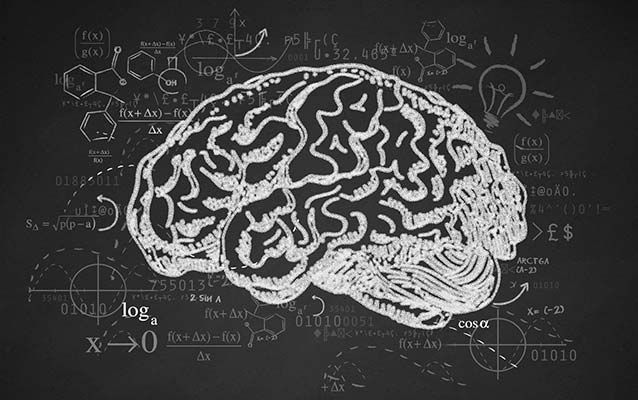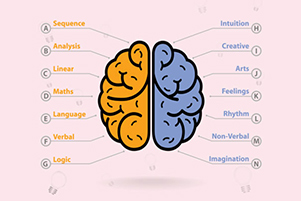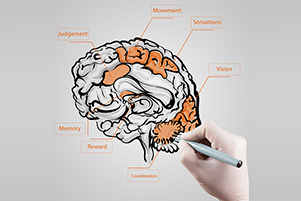Beyond the Syllabus: 30 Amazing facts about your brain
The brain is one of the most important and at the same time an extremely fascinating organ of the human body. A normal human’s brain starts developing within the womb as a fetus and continues to grow for the next 18 years or so.
Another amazing fact is that a newborn baby’s brain grows around three times in the first year itself. Can you imagine that? In fact, studies reveal that reading aloud and talking to a young child often promotes brain development.
Simple taken-for-granted aspects of our life like our memory, sleep patterns, dreams, decision making ability and even things as simple as yawning and feeling ticklish are feelings/sensation which our brain recognises, understands and communicates. Doing all of this in just one thousandth of a second.
So, let us find out some really amazing facts about an organ we all possess but sometimes refrain from using it to the fullest.
Brain and its constituents
Our brain weighs just 2% of our body weight and is made up of 75% water. But the human brain uses 20% of the total oxygen supply as well as blood circulation in our body. The brain can live for four to six minutes without oxygen. However, if the brain doesn’t get oxygen for 5 to 10 minutes then it would lead to permanent brain damage.
Grey matter and white matter
The human brain is made up of 40% grey matter and 60% white matter. The grey matter is made up of neurons, which gather and transmit signals whereas the white matter is made up of dendrites and axons, which create the network through which neurons transmit their signals.
Blood vessels
An average adult human being’s brain has around 100,000 miles of blood vessels.
Neocortex
The human brain has a part called the neocortex which makes up about 76% of the brain. This part of the brain is responsible for knowing languages and ensuring consciousness. The neocortex in a human being’s brain is much larger than that seen in animals.
Nerve Fibre
The human brain is made up of axons or nerve fibres which transmit information to different neurons, muscles and glands. The human brain has more than 100,000 miles of axons and their length is such that they could wrap around the Earth four times.
Neurons
The human brain consists of 100 billion neurons and that is why it is considered to be one of the most powerful learning tools in the world.
Storage capacity
The human brain cells can hold around five times as much information as any encyclopedia in the world. Scientists are yet to settle on a definitive memory capacity of our brain but the storage capacity of the brain in thought to be somewhere around 1,000 terabytes. But this differs from person to person.
To understand this better, let us take an example, the National Archives of Britain which contains over 900 years of history is known to take up 70 terabytes of space, making your brain’s memory power quite impressive.
Weight
The weight of an average adult human’s brain is around 1,300-1,400 grams.
Fattest organ
The human brain is the fattest organ in the body and consists of at least 60% fat.
Pain receptors
The brain has no pain receptors and that is the reason why it cannot feel any pain. It is due to this reason that doctors can perform brain surgery on conscious patients as they will not be able to feel anything.
Brain tissue
As per research it has been found that the tissue in our brain has a consistency that is very similar to tofu. In fact, a living brain is so soft that you can cut it with a butter knife.
Brain Cells
A human being has the maximum brain cells when they are two years old.
Chemical reactions
There are more than 100,000 chemical reactions occurring in your brain every second.
Brain works in totality
The age old saying that humans use only 10% of their brain is false. In fact, every part of the brain has its own known function. Most of your brain is active all of the time, even when you are sleeping.
Speed
The human brain functions in such a manner that information can be processed by it as slowly as 0.5 meters/sec or as fast as 120 meters/sec which is approximately about 268 miles/hr. Also, studies have revealed that brain messages travel between neurons in just one thousandth of a second.
When a person consumes alcohol then it interferes with the brain processes by weakening the connections between neurons and our brain starts to function slower than usual.
Wattage
When a person is awake their brain generates energy/power ranging from 10-23 watts which is enough to power a light bulb.
Senses
Charles Bell, a Scottish surgeon shared that each of the senses had a corresponding spot in the brain.
Feelings
Brain imaging studies show that human feelings originate inside the brain. So, it’s not your heart that falls in love, in fact the main culprit here is your brain!
Yawn
Scientists reveal that a person yawns to send more oxygen to the brain. This helps in our brain cells to cool down and wake up.
And while we are talking about yawning, we have another fun find – Have you noticed that every time you yawn, a person looking at you or sitting beside you tends to do the same? Scientists believe this may be a response to an ancient social behaviour for communication that humans still have.
Stress
Studies reveal that excessive stress alters brain cells, brain structure and brain function. Stress over long periods can weaken the brain’s ability to learn and remember. Thus, stress in the long run will not only give you bad headaches, it will also affect your other body functions adversely.
Tickling
Have you often wondered why you are not able to tickle yourself? Researchers share that the brain can aptly distinguish between unexpected external touch and your own touch and that is the reason why most people are not able to tickle themselves.
Jet lag
Studies reveal that frequent jet lag can impair a person’s memory because jet lag is known to release huge amounts of the stress hormone which ultimately hinders the memory capacity of the brain.
Memories
Every time a person recalls a memory or has a new thought, they tend to create a new connection in their brain. Studies reveal that memories triggered by scent have a stronger emotional connection and so appear more intense than any other memory triggers.
Scientists even reveal that when a person sleeps at night, the brain tends to consolidate all their memories from the entire day. This is the reason why it is said that people should have a good full night’s sleep because lack of sleep can affect a person’s ability to create new memories.
Thoughts
Humans on an average are believed to experience at least 70,000 thoughts in a day.
Insulin
Everyone knows that insulin works to regulate blood-sugar level in the body. However, scientists have now discovered that the presence of insulin in the brain helps promote the memory capacity.
Dreams
Have any of your friends told you that he/she doesn’t see dreams? Next time, call on this friend’s bluff instantly because the truth is that – Everyone dreams! But most of the people do not remember their dreams. Studies reveal that most people dream for about 1-2 hours a night and have an average of 4-7 dreams each night. Researches also share that five minutes after a dream, a person tends to forget half of the dream and ten minutes after a dream, over 90% of it is forgotten.
Studies suggest that brain waves are more active while a person is dreaming as compared to when they are awake. It is also stated that about 12% of the people dream in only black and white.
Some studies reveal that dreams are more than just visual images and blind people also dream. However, whether they dream in pictures or not depends on if they were born blind or lost their vision later.
Another amazing fact about dreams is that while a person is sleeping his/her body produces a hormone that usually prevents him/her from acting out their dreams. Thus, most people while dreaming are virtually paralyzed.
Well, those of you who snore, we have news for you, studies share that a person cannot dream if he/she is snoring.
Blinking
Every time we blink, our brain kicks in and illuminates things. So, this is the reason why our whole world doesn’t go dark each time we blink. And talking about stats here on an average every person blinks around 20,000 times in a day.
Laughing
Most actors are heard saying that making people laugh is the toughest job. Well, they are speaking the truth because research shows that for a person to laugh varied activities need to occur in five different areas of the brain.
Left and right-handed people
The brain is divided into two hemispheres by the corpus collosum which is the bridge that divides the two halves. Studies reveal that the corpus collosum of left-handed people is 11% larger than that of right-handed people.
Pregnancy
Studies show that a woman’s brain shrinks during pregnancy and it takes up to six months to regain the brain’s size.
Explore More:
- Beyond the Syllabus: 5 unsolved mysteries of India
- Beyond the Syllabus: Unsolved mysteries of the world
- Beyond the Syllabus: Who got there first - the deepest, highest and farthest places on Earth
- Beyond the Syllabus: Six engineering marvels in India
- Beyond the Syllabus: 10 least explored areas on Earth
- Beyond the syllabus: Eight must visit places in India for science students
- Beyond your Syllabus: YouTube channels to sound smarter – Part 1



